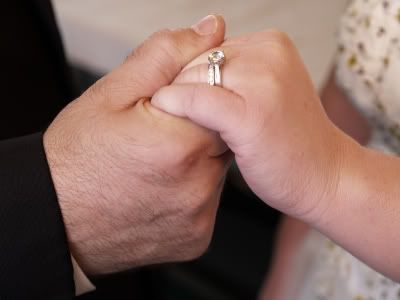Divorce no longer carries a stigma it once did and laws make getting one easier than ever (though I’ve always thought that the wit who coined the term “no-fault” divorce must have had a very black sense of humor).
So divorce isn’t such a big deal anymore, right? It may be that fear of divorce is actually preventing young people from taking the leap and getting married.
A new study entitled "The Specter of Divorce: Views From Working- and Middle-Class Cohabitors" indicates that concerns about divorce are so widespread that young people may decide that marriage is just too much of a risk. They prefer to live together without the commitment of marriage.
“Young Americans increasingly express apprehension about their ability to successfully manage intimate relationships. Partially in response, cohabitation has become normative over the past few decades,” the study states.
Interviews with 122 “cohabitating” men and women, ages 18-36, conducted for the study, which was published in the December issue of the journal Family Relations, reveal that many of these people are terrified by the prospect of divorce. Fear of divorce may be driving our low marriage rates.
Roughly two thirds—or 67 percent—of those interviewed for the study admitted that they had serious fears about the legal, emotional, financial, and social aspects of divorce. The study also notes that working class subjects were more likely to regard marriage as “just a piece of paper” than those designated middle-class.
While middle-class subjects often were willing to talk about commitment, many of their working-class counterparts weren’t willing to go that far. They were so worried about the financial aspects of marriage that they didn't want to even talk abut commitment. The fear: that they would end up with more, not fewer, not fewer, financial burdens if they married. Not necessarily an ill-founded fear: wages have gone down and unemployment has gone up among blue-collar men.
The study does not deal with the incentives to merely live together supplied by many government programs.
The class aspect of this study parallels the findings in Kay Hymowitz’s groundbreaking 2006 book, Marriage and Caste in America, in which she discovered The Marriage Gap (which, in terms of civilization’s future may be a heck of a lot more important than the gender gap!). While the college educated see marriage as key to child-rearing, many among th the urban poor have “lost the script” for marriage, according to Hymowitz.
Cohabitation, she wrote, doesn’t do the trick when it comes to building a family and creating the next generation. "As the core cultural institution," Ms. Hymowitz writes, "marriage orders life in ways that we only dimly understand. It carries with it signals about how we should live, signals that are in line with both our economy and our politics in the largest sense."
The Specter study was done to help counselors prepare couples for marriage, a worthy goal. But what it really does is contribute to the literature about a core institution in trouble.


